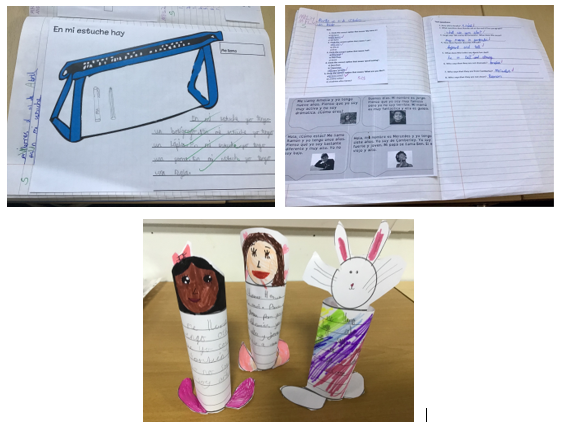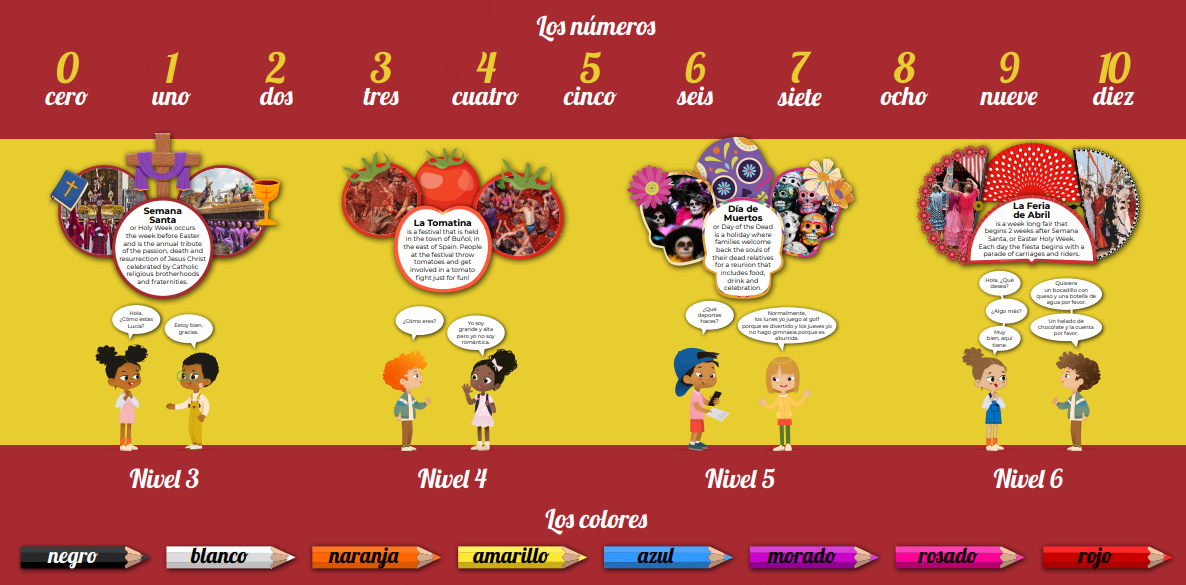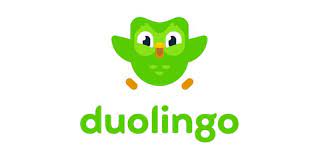Spanish (MFL)

Rationale
At Ravenscote Junior School, we teach a foreign language to all KS2 children as part of the normal school curriculum. We believe that many children enjoy learning to speak another language and that the earlier a child is exposed to a foreign language, the faster the language in question is acquired.
We also believe that it is beneficial to introduce a new language to children when they are at primary school, as they tend to be less self-conscious about speaking aloud at this stage of their development. It is widely believed that the early acquisition of a foreign language facilitates the learning of other foreign languages later in life.
Intent
- Understand and respond to increasingly complex spoken and written language.
- To foster a love for languages.
- To develop an awareness of Spanish culture and cultural differences in other countries.
- Improve understanding of English through knowledge and learning of Spanish language and grammar.
- To understand written and spoken language.
- Develop their listening and speaking skills.
- Foster an interest in learning other languages.
- Introduce children to a language in a way that is enjoyable.
Implementation
Each year group receives one hour of Spanish teaching from a specialist teacher every week.
Each class in a year group covers the same topic and meets the same objectives outlined in the National Curriculum, over the course of a half term. Work is adapted according to the progress and needs of children.
Work is assessed through regular pupil assessment and teacher marking. Data recorded shows attainment in the skills of listening, speaking, reading and writing.
The key concepts we plan a progression for are as follows:
- Listening and responding
- Speaking
- Reading and responding
- Writing
Teaching is based on the curriculum map for languages, which is well sequenced and progressive. It identifies the end points we expect children to reach at the end of each year group.
A variety of techniques are used to encourage the children to engage actively in the MFL: these include games, role-play and songs. Mime is often used to accompany new vocabulary in the foreign language, as this teaches the language without the need for translation.
Initially, there is more emphasis on listening and speaking skills, than on reading and writing skills as these are skills which they are still developing in their native language. A multi-sensory and kinaesthetic approach to teaching, i.e. introducing a physical element into some of the games, as this serves to reinforce memory.
Lessons are made as entertaining and enjoyable as possible, as this approach serves to develop a positive attitude in the children to the learning of modern languages. Praise is used to build the children’s confidence and encourage contribution to the lesson.
Year 3 start by learning phonics and continue to revisit sounds throughout the year to help the children to clearly see the sound-writing link, helping with their reading and writing. They also learn key grammatical structures which will enable them to work at sentence level. There are also many cross-curricular links such as Maths (numbers), Geography (weather) and music (instruments).
The year 4 curriculum also contains many cross-curricular aspects. The children will earn numbers 1-30 in Spanish (Mathematics). Furthermore, the children will have the opportunity to take part in cultural projects throughout the year as we learn about ‘El Flamenco”. This topic gives the children the opportunity to reflect on what they have learned in the lesson and improve their cultural awareness.
Year 5 is the start of a greater focus on grammar. The children learn about clothes, body parts, hobbies, food and professions so by the end of the year they are able to structure sentences and have a good understanding of Spanish grammar. The children also work on using language more creatively, using a range of structure and games to expand vocabulary.
Year 6 look at the theme of holidays. In this subject they build on their knowledge of grammar, extending on their knowledge of conjugating which they learned in year 5. In year 6, the children learn topics which are relevant to them, including how to ask for and buy tickets for transportation and ordering food abroad. This prepares them to go on holiday in a Spanish speaking country and to be able to confidently speak the language needed.
Impact
The MFL scheme of work develops many transferable skills, which impact all year groups. Listening is an integral part of all lessons, and this requires the children to distinguish different types of sounds. They are more adept at focusing on relevant information and editing out the irrelevant. The children are also required to speak Spanish for a range of purposes, they must think about what they want to say and have the confidence to deliver it. The children regularly learn new vocabulary which helps them to recall information better and more quickly, as well as improving their range of vocabulary in English.
The children often problem solve in language lessons, not only because of the nature of the tasks, but also because of the nature of language learning. The children often have to come up with creative ways to express what they want to say using alternative methods.
Please click here to access our MFL Policy document.

"I like learning Spanish because it allows you to learn about other cultures and speak to people around the world." Hannah, Year 5.
"I like learning Spanish because it is a fun language to learn and I like learning new languages." Ollie, Year 4.
"I like Spanish because I have a great Spanish teacher." Alayna, Year 6.
"I love Spanish because we get to learn a different language and it is fun because we learn through games and songs." Oliver, Year 3.
The following useful websites may aid with your child's learning.




